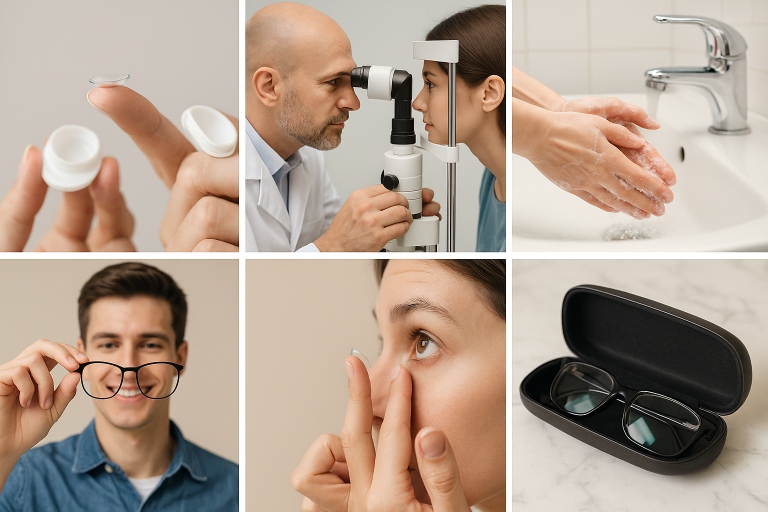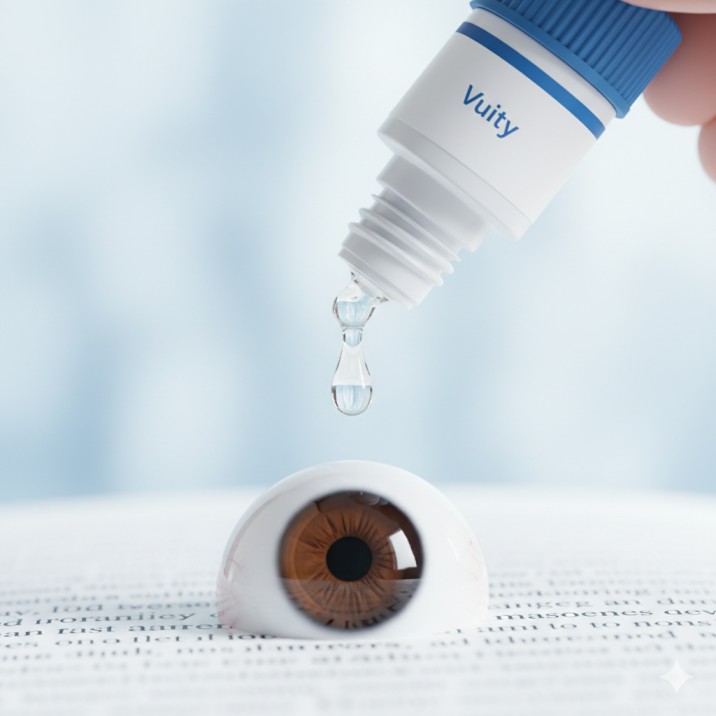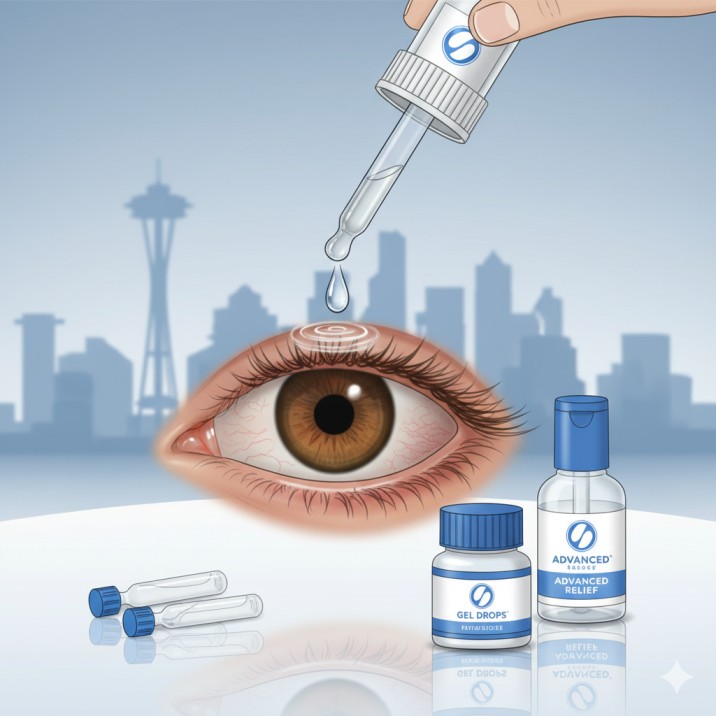Extended Wear Contacts: Risks, Benefits & Care Tips
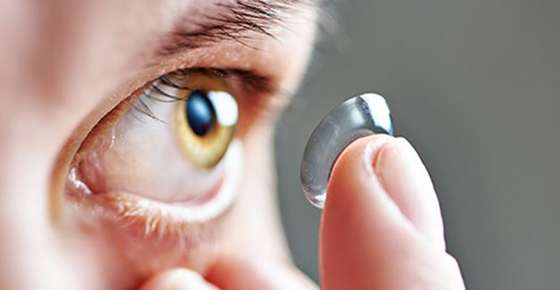
Key Takeaways: Expert Guide to Extended Wear Contacts from Cannon Eye Care (Seattle, WA)
-
Extended Wear Isn’t for Everyone: Only those with healthy eyes, good hygiene habits, and commitment to regular exams should consider long-term contact use.
-
Advanced Materials Make the Difference: Silicone hydrogel lenses drastically improve oxygen flow, comfort, and wearability—critical in Seattle’s dry climate.
-
Hybrid Lenses Offer a Tailored Solution: Combining rigid clarity with soft comfort, they’re ideal for patients with complex vision needs.
-
Moderation is Your Best Defense: Removing contacts a few hours before bed gives your eyes vital recovery time and prevents Contact Lens Over-Wear (CLOW).
-
Know the Risks, Act Early: Symptoms like redness, blurred vision, or discomfort aren’t minor—get them checked promptly to avoid permanent damage.
-
Hygiene and Habit Matter Most: Skipping clean hands, proper care, or scheduled breaks can turn convenience into danger.
-
Annual Eye Exams Are Non-Negotiable: Professional monitoring by experts like Dr. Cannon helps detect silent threats like corneal neovascularization or nerve damage before vision loss occurs.
-
Your Lifestyle Dictates Your Fit: From night-shift workers to athletes, extended wear can suit demanding routines—but only with optometrist guidance and safety-first practices.
Extended Wear Contacts Decoded: Safety Through Innovation
With 15+ years serving Seattle patients, Dr. Mark Cannon at Cannon Eye Care (University District) shares how material science revolutionized extended-wear lenses—balancing convenience with ocular health.
What Makes Extended Wear Lenses Unique?
Unlike daily contacts, these specialized lenses safely remain in place for days or weeks—but only when paired with advanced materials and professional oversight.
Silicone Hydrogel: Oxygen’s Gateway to Your Cornea
The breakthrough? Silicone hydrogel lenses. They outperform older materials by:
-
Superior Breathability: Up to 5x more oxygen reaches your cornea, slashing hypoxia risks.
-
Enhanced Moisture Lock: Stabilizes tear film to combat dryness (critical in Seattle’s climate).
-
Easier Handling: A slightly firmer texture simplifies insertion/removal.
Hybrid Lenses: Precision Meets Comfort
For complex vision needs, hybrid designs fuse:
-
A rigid gas-permeable (RGP) center for crystal-clear optics.
-
A soft silicone hydrogel “skirt” for all-day comfort.
“Technology lets you safely extend wear time—but never skip checkups.”– Dr. Cannon, Optometrist
Long-Term Contact Lens Wear: Balancing Comfort & Safety
Wearing contacts reduces oxygen flow to your cornea, disrupting its natural balance (homeostasis). This often triggers dryness and discomfort—a sign your eyes need breathing room.
The Golden Rule: Moderation Prevents CLOW
At Cannon Eye Care in Seattle, we champion a simple habit: remove lenses 2-4 hours before bedtime. This combats Contact Lens Over-Wear (CLOW) by giving your corneas critical oxygen recovery time. Bonus? You’ll never accidentally sleep in them!
Dr. Cannon’s Personal Wake-Up Call
During optometry training, Dr. Mark Cannon tested overnight lens wear. The result? Severely irritated eyes that struggled to open—even artificial tears offered minimal relief. This firsthand experience underscores why avoiding CLOW is non-negotiable for ocular health.
Extended Wear Risks: Beyond Discomfort
-
Nerve Damage: Chronic oxygen deprivation can desensitize corneas by harming nerves, masking discomfort while causing permanent injury.
-
Neurotrophic Keratitis: Age reduces nerve repair ability, raising risks of this serious numbness-linked condition.
Sleep-in Contacts? The Hidden Dangers
-
Corneal Neovascularization
Abnormal blood vessels invade the cornea, potentially causing permanent vision loss if they reach the central sightline. -
Corneal Edema
Hypoxia cripples cells that regulate corneal fluid, leading to dangerous swelling. -
Superficial Keratitis
Inflammation-triggered cell death; repairable with expert care (like Dr. Cannon’s dry eye specialty) but a clear warning to stop over-wearing immediately.
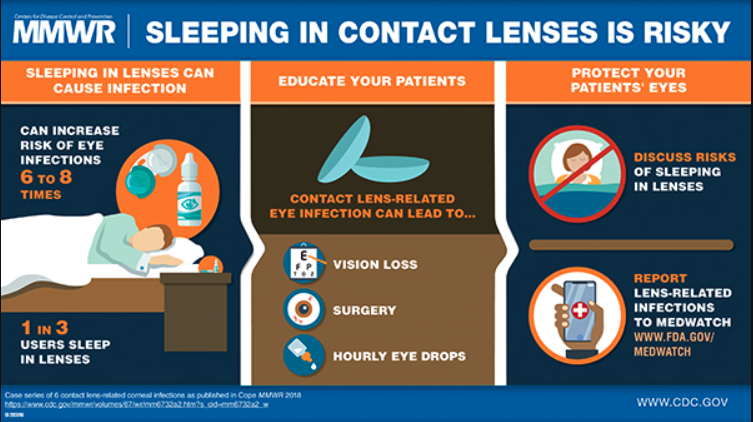
CDC infographic about risks of sleeping in contacts
Extended Wear Contacts: Is Your Lifestyle a Match?
At Cannon Eye Care (Seattle’s University District), Dr. Mark Cannon emphasizes that extended-wear lenses suit specific lifestyles—not all eyes.
Your candidacy hinges on three pillars: ocular health, habits, and commitment to care.
Ideal Candidates
- Busy Professionals & Night Shift Workers
Perfect for unpredictable schedules when nightly removal feels impossible. - Athletes & Outdoor Enthusiasts
Maintain crystal vision during hikes, games, or adventures without lens interruptions. - Healthy Eyes Only
Requires infection-free corneas and no chronic dry eye (common in Seattle’s pollen seasons).
When to Avoid Extended Wear
- Chronic dry eye/allergy sufferers
- History of eye infections or corneal ulcers
- If you struggle with hygiene or skip annual exams
Dr. Cannon’s Assessment Checklist
Your evaluation at our Seattle clinic includes:
-
Corneal Oxygen Demand
Measuring your eyes’ unique breathing needs. -
Tear Film Stability
Analyzing blink patterns and moisture retention. -
Lens Care Discipline
Can you follow replacement schedules religiously?
Extended Wear Contact Risks: What Seattle’s Cannon Eye Care Monitors
Extended-wear lenses offer convenience—but without vigilant care, they risk your vision. At Cannon Eye Care (University Village, Seattle), Dr. Mark Cannon prioritizes early detection to prevent these complications:
Critical Risks of Overnight Wear
- Infections
Microbial keratitis (corneal infections) can escalate to vision loss without prompt treatment. - Corneal Ulcers
Bacterial/fungal sores tied to poor hygiene or overwear. - Corneal Neovascularization
Abnormal blood vessels from oxygen starvation, are a threatening sight. - Corneal Edema
Blurry vision and pain from oxygen-deprived swelling. - Nerve Damage
Desensitized nerves (neurotrophic keratitis) may hide injuries until too late.
Urgent Symptoms Demanding Immediate Care
If you experience:
-
Persistent redness or irritation
-
Sudden blurred vision
-
Unrelenting eye pain
-
Unusual discharge
Visit our Seattle clinic ASAP—delays risk permanent damage.
Extended Wear Safety: Dr. Cannon’s Seattle-Approved Protocol
Protect your vision while using extended-wear contacts with these essential practices from Cannon Eye Care (University Village, Seattle). Our clinic’s 15+ years of expertise confirm: that strict adherence prevents 90% of complications.
Non-Negotiable Safety Rules
-
Follow Wear Schedules Exactly
Never exceed your prescribed duration—overwear risks permanent damage. -
Hygiene First, Always
Wash and dry hands thoroughly before handling lenses; use only fresh solution. -
Mandatory Removal Breaks
Allow corneal recovery during prescribed lens-free periods. -
Overnight Wear Requires Approval
Sleep in lenses only if your optometrist confirms they’re designed for it. -
Emergency Glasses On Standby
Keep updated glasses accessible for sudden lens-free needs. -
Bi-Annual Exams at Our Seattle Clinic
Let Dr. Cannon monitor corneal health and adjust your fit. -
Zero Water Exposure
Remove lenses before showers, swimming, or hot tubs.
Pro Comfort Strategies
-
Use optometrist-approved lubricating drops for dryness (especially in Seattle’s dry seasons).
-
Replace lens storage cases every 3 months to prevent bacterial growth.
-
Minimize strain: Take screen breaks and avoid smoking (a proven eye irritant).
Extended wear contact lenses offer incredible convenience—but only when matched with the right eyes, the right materials, and the right guidance. At Cannon Eye Care in Seattle’s University District, we combine advanced diagnostics with personalized care to ensure your vision stays sharp, comfortable, and protected. Whether you’re navigating long shifts, active weekends, or simply seeking freedom from daily lens routines, our expert team will help you make the safest choice for your lifestyle.
FAQs
-
What are extended wear contact lenses and how long can I wear them?
Extended-wear contacts are lenses designed for continuous use, typically worn up to 6-7 nights, with some approved for up to 30 days. Always follow your eye doctor’s guidance.
-
Who is a good candidate for extended wear contact lenses?
-
How do I care for extended wear contact lenses to avoid infections?
-
What are the common risks of wearing extended wear contacts overnight?
-
When should I remove my extended wear lenses and see my eye doctor?
-
Can I switch between daily wear and extended wear contact lenses?
-
How often should I have my eyes checked when using extended wear contacts?
-
Are extended wear contact lenses safe to sleep in every night?
-
How do extended wear contacts affect eye oxygen levels?
-
What should I do if my eyes feel dry while wearing extended wear lenses?
-
Can extended wear contacts correct astigmatism or other vision problems?
-
How do I know if extended wear contacts are causing an eye infection?

